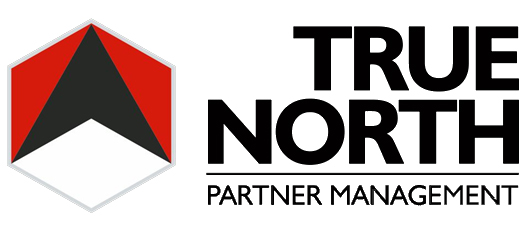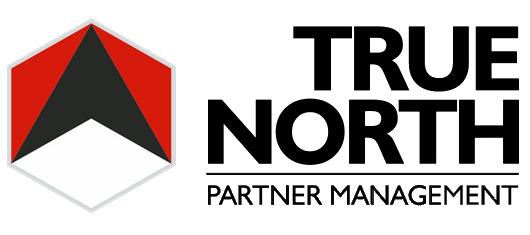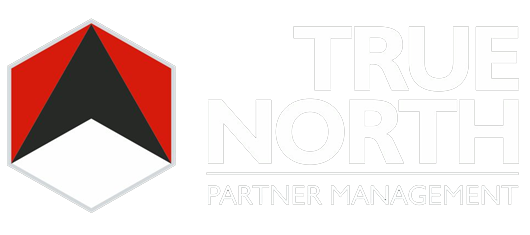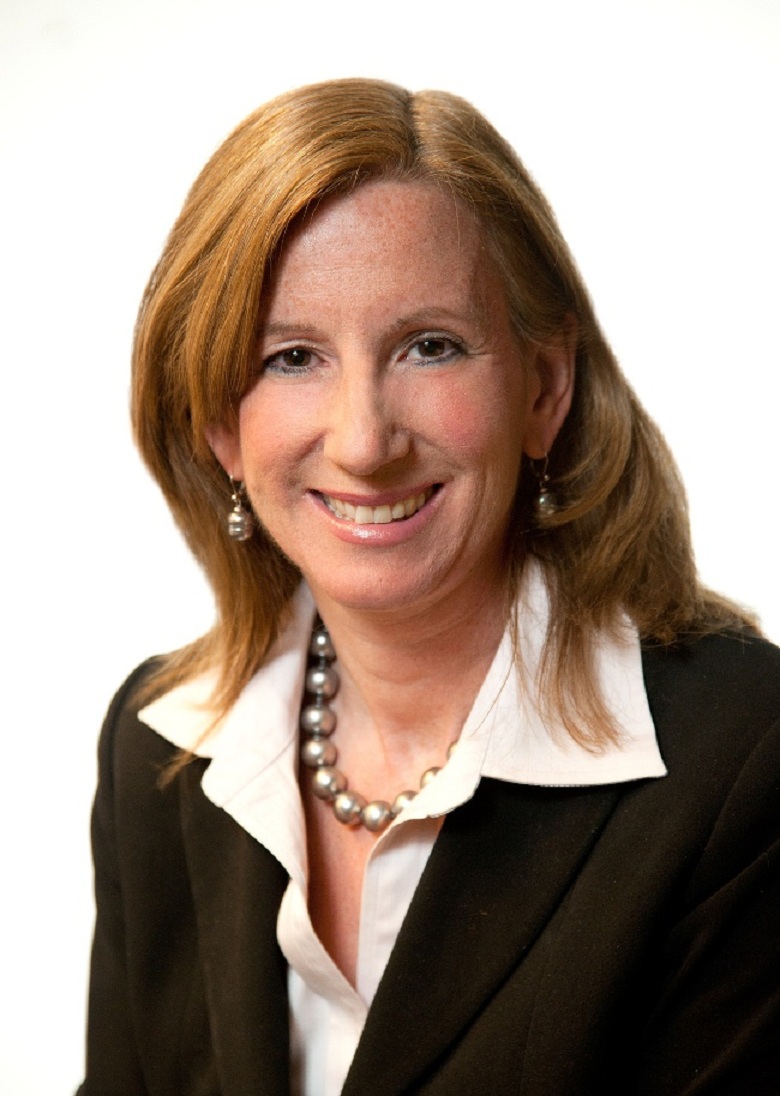The following post originally appeared on Forbes | February 23, 2015
Professional services firms are a different breed. Their partnership model provides myriad benefits in an intimately customer-centric business: Mutual monitoring and adjustment, higher work standards, and greater internal synergies, to name a few. It is not without its challenges, however. The firm’s “product,” is human, literally, and can up and leave should it suit. And as the partnership grows, decision making and gaining consensus become more difficult.
It is also a uniquely challenging environment for leadership, who are set to lead and manage those that are, in effect, at peer level. And as many professional services firms continue to expand globally, tasks like ensuring quality and consistency of work product across borders, and orchestrating deployments across numerous and varied regulatory regimes require a leader of a different breed. This fact hasn’t been lost on Deloitte LLP.
With a voluminous roster of more than 210,000 professionals in over 150 countries and territories, Deloitte Touche Tohmatsu Limited (DTTL) is the largest of the Big Four professional services global networks. In seeking to hire another 24,000 employees next fiscal year, Deloitte LLP, the US member firm, is keenly aware of the challenges that will come along with such growth, including building consensus, cohesiveness, and synergies across borders.
Today, I speak with Cathy Engelbert, who will become the first female to lead one of the Big Four in the U.S. when she takes up the role of chief executive officer of Deloitte LLP on March 11 of this year. She shared with me her vision as a leader, and an insider’s look at Deloitte’s direction, strategy, and infrastructure. See our exchange below:
On Deloitte’s And The Big Four’s Dominance
Parnell: Looking at your size and coverage, there’s an obvious dominance of the marketplace; the Big Four, on the whole, has a huge share. If you could, talk to me about that. With the rapidly evolving market and clients’ ever-increasing access to information, do you see this as being sustainable? How do you see that dominance playing out over the next 5 to 10 years?
Engelbert: David, I think the key point is that the companies Deloitte serves are facing an unprecedented level of complexity. The pace of change that technology is bringing, that the digital economy is bringing—both as a disruptor and an enabler of business—and regulatory change, all of these are key issues Deloitte’s clients are facing.
Technological advances are changing what clients need, the services we provide, and how we interact with them. There is a premium on innovation and commercializing new ideas. We must be vigilant and quick. Demand for talent with specialized and technical skills will grow, and Deloitte will need to invest to keep skills relevant.
And there are implications with respect to competition. There are more opportunities to shake up the state of play, not only with new ways of operating, but by introducing business models with different success formulas. Meanwhile, globalization, increasing information accessibility, and changes in service delivery are making differentiation harder. And today’s differentiator can quickly become tomorrow’s table stakes.
I think that when properly deployed, the resources of an organization like ours can provide the means to maintain and increase competitive positioning. Deloitte plans to double its investment over the next three years in innovation. And that innovation stems from the areas of technology, talent, and people. As we think about talent gaps—STEM graduates, data scientists, and people with those types of skills—they are becoming more critical. We are using artificial intelligence and machine reading for the first time in some of our businesses; and analytics to help us assess risk, we believe, in a better way.
So, I think we are well-positioned to continue to define and maintain the standards that we go by: Quality, compliance, performance, integrity, all the things that Deloitte is known for.
On Deloitte’s Strategy For The Next 5 to 10 Years
Parnell: What are your aspirations, as a firm, over the next 5 to 10 years?
Engelbert: We aspire to be the undisputed leader in all the markets we compete in, with the power to shape markets.
In our consulting and advisory businesses, undisputed leadership means also serving the world’s most important enterprises in all key industry sectors, helping our clients unlock growth with bold ideas and innovation, and giving them the confidence to drive transformational change.
What that means in our audit business is being the voice of the profession, the clear quality leader, and serving the world’s most important enterprises in all key sectors.
In tax, we aspire to be the leading tax advisor driven by our ability to innovate through technology and lead our clients through change and reform, whether it be in the U.S. or globally.
Achieving these aspirations will require investments in technology, more specifically, artificial intelligence, cloud, analytics, and digital technologies; talent, especially more nontraditional talent for a Big Four organization; global delivery capabilities supported by more geographic and solution-focused delivery centers; and sensing and thoughtware, to more quickly identify opportunities and commercialize them.
On Merging With A Law Firm—Overtures Into The Legal Industry
Parnell: In the BigLaw space, there is a significant amount of speculation about whether or not the Big Four will be looking to eventually merge with a major law firm. What are your thoughts on that? Are there aspirations to ultimately move into the legal space?
Engelbert: I can be quite direct: Deloitte cannot practice law in the United States, given our other businesses and how we are regulated. Therefore, we have no plans to enter into the legal market or to compete with law firms here in the US.
As you know, we work with lawyers in a very collaborative way to help our clients address their critical and complex business issues, transactions, crises, etc. We work very closely with them, but, again, have no plans to practice law or to compete with law firms here in the US.
Parnell: Can you comment on plans outside of the US? We are regulated in a way here that there couldn’t be a merger. But there is liberalization in the UK and Australia, for instance. In deregulated areas like those, would there be a possibility?
Engelbert: I don’t have any comment on plans outside of the US. Obviously, different countries have different regulations, and I know there are different models outside the US, but I don’t have any comment that is specific to the strategy of other DTTL (Deloitte Touche Tohmatsu Limited) member firms.
On Deloitte’s Business Structure
Parnell: Generally speaking, most law firms are of a one-firm model: They have a single global profit pool. The Big Four are, generally speaking, federations functioning under a common name. Deloitte is a global network of member firms with a central coordinating entity structured as a UK private company, limited by guarantee. Can you talk to me about the pros and cons of the structural model that you function under?
Engelbert: I think there are two sides to the story around structure. I think you are looking at a legal entity model versus an operating model. While the DTTL model does involve legally independent member firms, the DTTL member firms have a common understanding of values, purpose, and core beliefs, and we operate on a common platform, and a common definition of the services we provide, and the standards and quality that we expect around the globe.
This means that for clients doing business across borders, the DTTL member firms can provide seamless coordination of services throughout the globe, whether it’s in Japan, or Mexico, or Brazil, or Europe.
A big advantage of our structure is our ability to sense and respond to the dynamics of local markets. The DTTL member firms know the industries and entities in their own markets, and have the discretion to develop corresponding capabilities and solutions. This benefits both our multinational clients and our many clients who function within a single country or region, and is important when you have a client-centric strategy. Decisions made centrally, thousands of miles from the markets clients are operating in, will likely not be as attuned to local market realities.
So, I think that we are moving in the right direction, focusing on our strategy around collaborating across the entire DTTL global network. This is going to be a top priority of mine and our global leadership.
On The Leverage Pyramid In Professional Services
Parnell: In BigLaw, in particular, we are seeing a commoditization of particular portions of legal services, which is taking away from the bottom of the leverage pyramid and making it more and more difficult for law firms to support the same size partnership rosters. Are you feeling this? Are you running into the same thing?
Engelbert: It’s a great question, and certain portions of our business are feeling it more acutely than others. I think there’s a contrast between the law firm model and ours. There is more variation across our businesses than is true of law firms. In most of our businesses, though, leverage has been increasing; the base of the pyramid has been getting wider. Part of the reason is that we have moved beyond just advising. We also implement our solutions, and in certain cases, operate them. By definition, then, leverage increases. Additionally, we also see Deloitte moving beyond services to licensing products, where the leverage model wouldn’t even be a metric one would consider important. For these reasons, it’s hard to compare us and law firms.
But I want to emphasize that attracting and retaining the best professionals remains a key priority for us. While we see certain businesses becoming more automated, those will still require people with special skills to maximize their potential. Other businesses are popping up that require more people as demand grows. That’s why we will hire 24,000 people next fiscal year.
On Markets Of New Growth
Parnell: In what industries or markets do you see growth coming from in the next 1 to 2 years?
Engelbert: Big growth areas are services involving digital, analytics, cloud, regulation, risk–especially cyber risk—and business transformation. Industries we think could experience higher growth relative to other industries are life sciences and healthcare, financial services, and the public sector. And I think consumer and industrial products sectors will also grow as the economy and employment continue to show positive signs in the U.S.
To capitalize on these areas of new growth we have to expand and enhance our research and development efforts. One way we do this is through innovation think tanks: Breakthrough labs to meet the demands of our clients. So, will technology growth be different because of the cloud, digital, and wearables and 3-D? We’re looking at all of these as we pursue areas of potential growth.
Another area is, really, about our people. People don’t typically think about that as innovation or investment, ordinarily, but it is a huge area of innovation and investment for us. Our people are our greatest asset. And we are constantly trying to attract and retain high quality talent. Deloitte believes it is crucial to retain professionals, because obviously the talent market out there is very competitive.
For example, we invested $300 million during the downturn to build what we call “Deloitte University.” It is a 700,000 sq. ft. campus in Westlake, TX, right outside of Dallas. Deloitte University is really about leadership development. Our people love it! Even with all the technology and everything online, now, our professionals do still love getting together and collaborating in an environment where we can advance their more formal learning and development.
On The Top Forces Of Change In The Market
Parnell: What would you say are the three most important or impactful forces of change in your market?
Engelbert: I always try to take into account what our clients are telling us that they are experiencing. They’re experiencing technological disruption as well as technological enabling of their businesses. They are innovating. They are spending a lot of money on R&D and think tanks. So, I think that is the number one force that is going to cause change: The way companies are doing business.
I’ve heard some who are asking what the Fortune 500 will look like in 5 to 10 years; will it even look similar to what it looks like today? Obviously, the rapid pace of change is driving that. At Deloitte, our commitment to innovation and technology informs everything we do.
Globalization is also key. While companies in the U.S. have been on the globalization journey for a long time, what’s different, now, is the increasing number of companies outside of the U.S. that are globalizing as well. The DTTL member firm footprint and the DTTL network allow us to be very well positioned.
And then, of course, our people—our greatest asset—which we talked about just a moment ago.
I will throw regulatory in there as a force because of the cost of compliance with regulation like Dodd-Frank, like health care reform, and regulation in our own profession. It seems like so many businesses are regulated. So we see that as a force of change and we strive to set the gold standard in terms of compliance and helping our clients with their compliance.
On Managing Quality Control, Risk, And Conflicts
Parnell: How are you managing quality control and risk and conflicts among so many different people, geographies, and industries?
Engelbert: It’s a great question, because the regulatory environment has become more complex, and, quite frankly, broader. And all of our businesses are regulated in some way. So, as I previously mentioned, our goal is to set the gold standard when it comes to compliance. I can’t tell you how important it is to engage constructively with the regulators. I’ve worked extensively in the pharmaceutical industry and I’ve seen, firsthand, companies work constructively with the FDA, because if not, their business model and operating model gets impacted.
In terms of how we do it at Deloitte, we proactively manage our business with controls, safeguards, and a clear tone from the top to ensure that our public interest mandate remains the bedrock of our professional services organization.
We are culturally unified, which includes our people understanding that we have an obligation to have a positive impact on our clients and society as a whole. Our training and ethics and compliance approach instills this understanding, including the need to deliver quality services and products in line with regulatory expectations.
We have a risk governance structure we are very proud of, and it is well understood across our lines of businesses. It’s designed to ensure the businesses work together in collaboration to make the right decisions to stay in line with regulatory requirements around independence and conflicts and to deliver quality.
We also use various tools and technologies to ensure our risk network is involved in the client and engagement approval process. We are steadfastly committed to continuous self-improvement. Our Chief Risk Officer reports directly to the CEO, which is a best practice. We have made investments around risk and quality management in the past several years, and we are very proud of these.
On The Global Economic Outlook
Parnell: Through your eyes, what is the global economic outlook? Where do you see growth, and where do you see decline over the next 3 or 4 years?
Engelbert: Well, you saw the employment report for January for the U.S. just recently; I think that was one more piece of evidence that the expansion is finally strengthening. And, in the GDP report, we saw a picture of balanced growth. In particular, we saw solid increases in personal consumption and business investment during 2014, both of which indicate a growing optimism about the future in the US.
Regarding the near-term outlook, Deloitte’s economists are forecasting a healthy rate of growth for the U.S.: 3.5 percent this year and an even stronger 3.9 percent in 2016. However, what’s happening outside the U.S. could threaten this positive outlook. I spent a lot of time in Europe in just the last month, and the eurozone is facing particularly significant challenges, not the least of which is the possibility of deflation. So, talking to a lot of CEOs from European companies, they are facing a very different economic outlook and are more reluctant, I think, to invest than U.S. executives.
You also have what’s happening in Asia, particularly China, which could adversely impact both U.S. and global growth. China is facing the possibility of deflation and is further burdened by significant over-investment in housing and some industry sectors. I think there are some real and growing downside risks in the global outlook at present.
On Balancing Between Consensus And Decision-making
Parnell: Law firm leadership, in particular, has to deal with a delicate balance between building consensus and being decisive in their partnership model. This is significantly different than being a CEO of a corporation, for instance, where the CEO can make a decision and send it down through the ranks without having to gain consensus from the entire company. Can you talk to me about that? How do you manage it? How do you deal with it in your organization?
Engelbert: First of all, I think it’s important to point out that the leaders of those corporations didn’t get to where they are today without collaborating. And collaboration is essential for all businesses to succeed. I think our structure requires a great deal of collaboration. And I think my leadership style, which is collaborative by nature, coupled with my ability to make decisions when needed, and to be fast and bold in the way we invest, are why my partners selected me to be the next CEO.
So, there is a balance between collaboration and just making decisions. I’ve been on a listening tour within our offices to ensure that I know what’s top of mind for my partners. They are, after all, owners in the partnership model.
On Her Own Leadership Style
Parnell: Could you talk to me more about your personal leadership style or philosophy?
Engelbert: I think one thing that everyone who knows me at Deloitte would say is that I’m all about our clients and our people. I’m passionate, too, about winning. I’m one of eight children. I have five brothers—three older brothers—and was always playing in the backyard (laughs). So I am passionate about competing and winning! I played basketball and lacrosse in college. So I definitely want to always “up” our game.
As I think about my own personal leadership style, it’s about collaboration; it’s about listening to, and making sure, that our partners feel like owners, because they are the ones that will drive our growth in the future.
Really, this is about leadership, ultimately. And when I think about leading an organization of Deloitte’s scale and depth and breadth, and with the talent model we have, and the success we’ve had, again, I couldn’t be more pleased with where we are and our focus on driving exceptional client service each and every day moving forward. Really, a relentless focus on clients, innovation, and our people sums up my personal leadership style.
On Business Leaders She Admires
Parnell: Can you talk to me about business leaders or executives that you admire?
Engelbert: You know, David, I’ve worked with so many key leaders of particular U.S. corporations over my 30 years with Deloitte. What I love to do is listen and watch the way they manage, the way they react, their leadership styles. I can’t really pick one out.
I really admire innovators. I feel we can always learn from the most innovative companies, whether it be from a marketing or branding standpoint, or from an investment or technology standpoint.
Internally at Deloitte I’ve had lots of mentors and sponsors who were in the room when people were having conversations about my next assignment. I’m so thankful for that culture at Deloitte because I wouldn’t have all the experiences that I’ve had without those mentors and sponsors. One of our former chairmen and CEOs, Mike Cook, started the women’s initiative in the early 1990s. We were the first of the professional services organizations to really start that. I happened to be in our national office at the time and was asked to work on Mike’s team. So I was exposed to the opportunities back then. Deloitte was trying to make sure that men and women—it wasn’t just about women; it was men and women—had the appropriate voice when opportunities came up. So, that I admire more than anything, because I wouldn’t be CEO today unless Mike started that journey years ago.
On Attributes Of Their Most Successful Clients
Parnell: Are there one or two or three attributes that stick out to you most about your most successful clients?
Engelbert: Yes, those that have made bold plays; those that are not focused on the short-term, but the long-term; and those that have a strategy that basically looks forward and says, “Who do we want to be? How do we want to be serving our consumers or our customers?” I’ll tell you, in this environment, you have to be bold or you will be left behind. We have a mantra here at Deloitte: “If we are not bold, someone else will be.” And we don’t want to be the followers. We want to lead.
On Advice To Up-And-Comers
Parnell: What advice would you give to a young person today that wants to make partner at a firm like Deloitte? Where would you say that they should focus their efforts?
Engelbert: I would say to take risks and don’t stand still! Do different things in your career to build your capabilities. That could include being part of different businesses during your career. I actually spent five years on two different stints on the advisory side of our business. I spent some time in our national office. Some of our people do global assignments.
It’s really about taking risks, because if you think of the demand for new skill sets, the broader the capabilities that people bring, the more they will be considered for the next assignment. So, it’s about taking risks and doing things differently. I think that young people are very, very in tune with that. And to retain them, you have to give them access to those kinds of opportunities. This generation coming up behind us is not going to be satisfied with the status quo. They’re going to want to work for companies that are reshaping the way we, and our clients, do business.
Email: dparnell@davidjparnell.com Twitter: @davidjparnell
Books: The Failing Law Firm: Symptoms And Remedies; In-House: A Lawyer’s Guide To Getting A Corporate Legal Position



